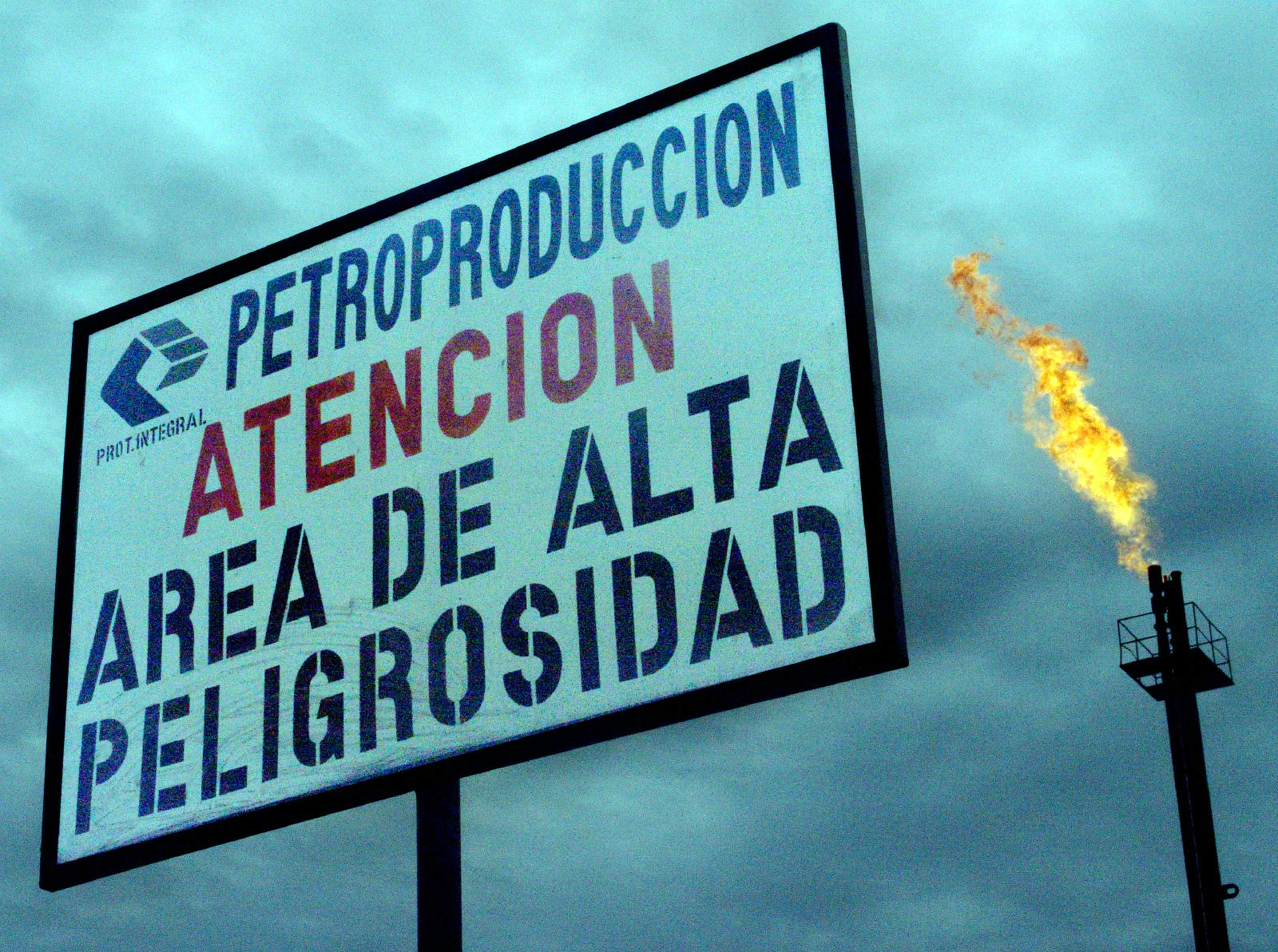Warning sign in an oil production area in Ecuador
Copyright© 00rini hartman, via flickr, CC BY-NC-SA 2.0
Economic situation High dependence on oil
In 2024, economic activity fell by two per cent. Some of the reasons for the fall were political uncertainty in the run-up to presidential and parliamentary elections in February and April 2025, the tense security situation and energy shortages. The worst drought in 60 years led to power outages across the country and to electricity rationing. As a result of all these factors, investment declined and private consumption fell. This slump was particularly felt by the processing industry and in the services sector.
The International Monetary Fund (IMF) is predicting that the situation will stabilise in 2025, with economic growth of 1.7 per cent. The IMF is supporting Ecuador via an Extended Fund Facility (EFF); as part of this arrangement the country is required to carry out austerity measures and reforms. In the past, the cancellation of subsidies in an effort to reduce costs led to mass protests.
As at: 18/08/2025
